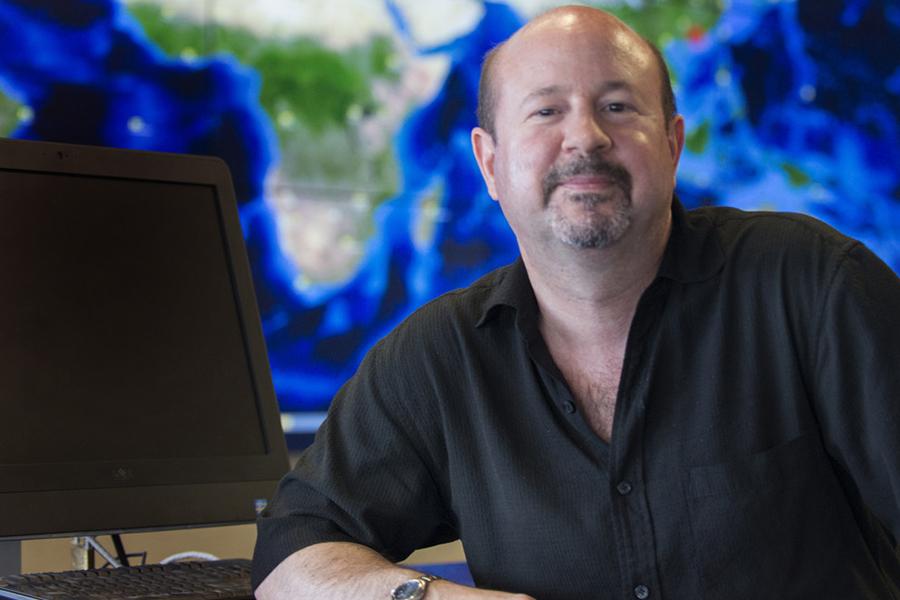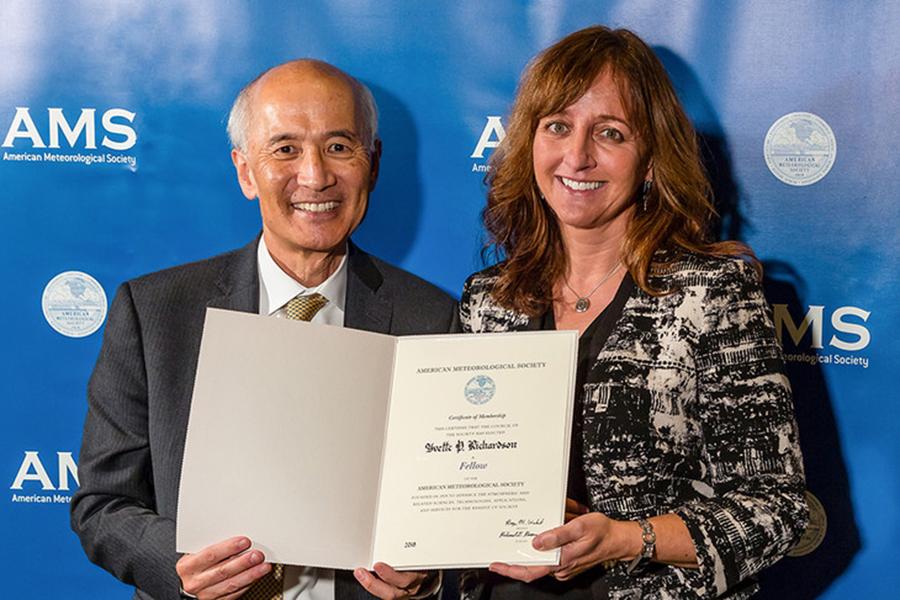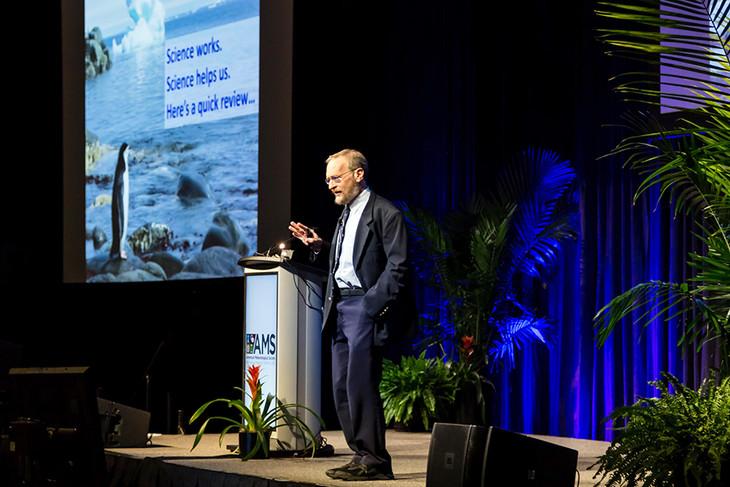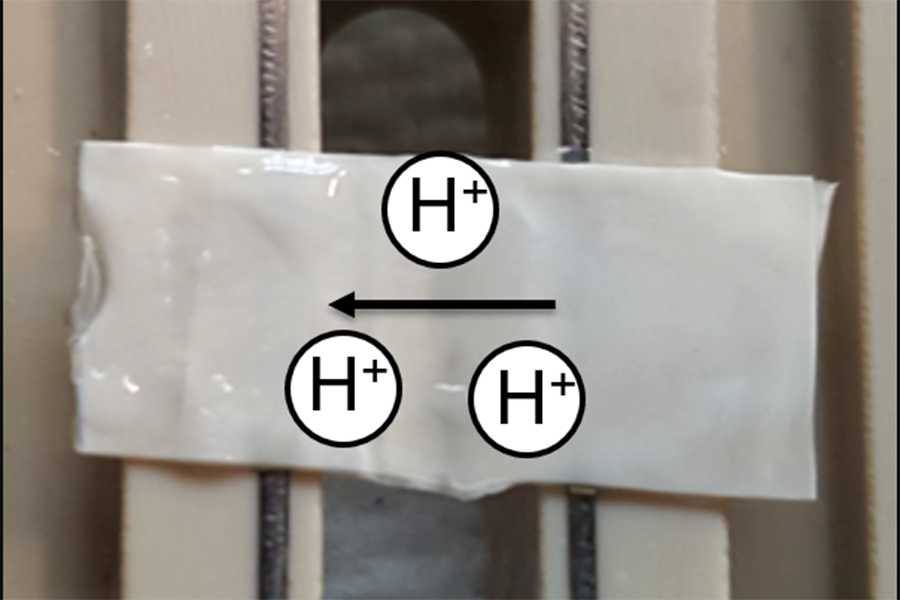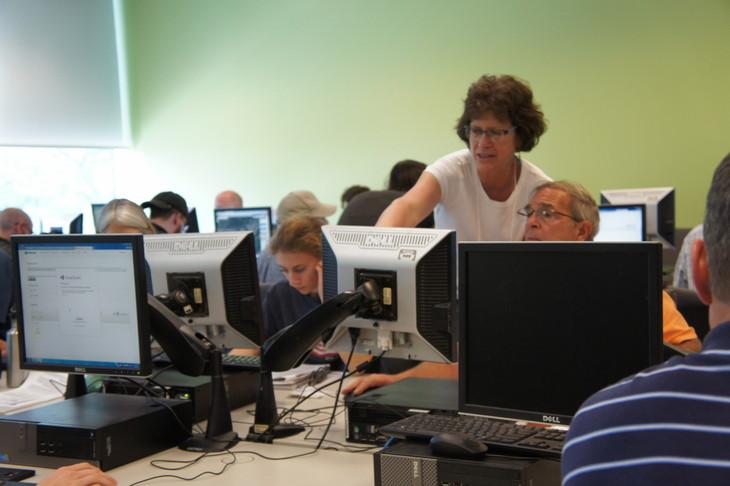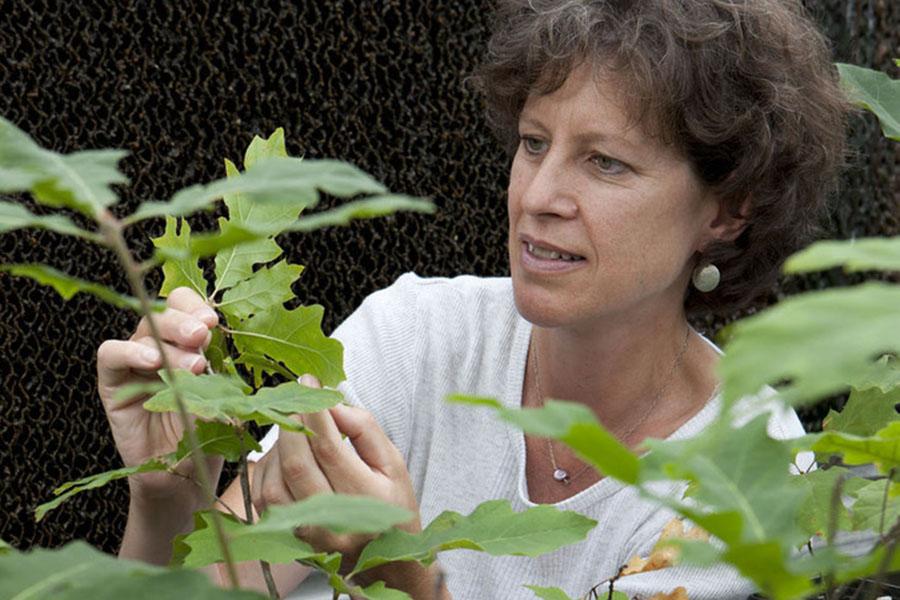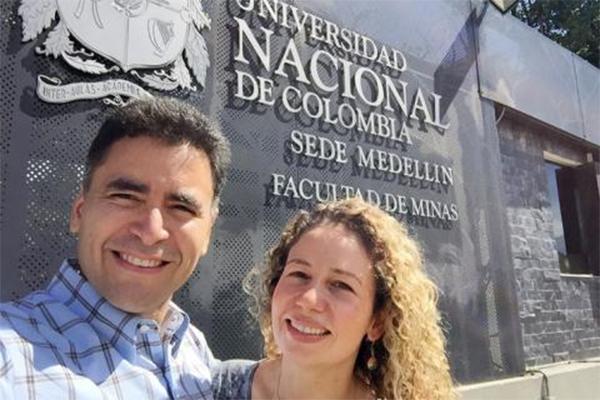Michael Mann, distinguished professor of atmospheric science and director of the Earth System Science Center, Penn State, will receive the 2018 American Association for the Advancement of Science Public Engagement with Science Award during the annual meeting in Austin, Texas, from Feb. 15 to 19.
When five students met at a first-year student orientation, they did not know their friendships would build through college and positively impact the community. Dan Cooley, Cole Ensminger, Steven Langballe, Peter Scalia and Shannon Stellato began their journey as members of the College of Earth and Mineral Sciences Student Council Benefiting THON (EMS THON) and emerged as leaders to support fundraising to fight cancer.
Yvette Richardson, professor of meteorology and associate dean for undergraduate education in the College of Earth and Mineral Sciences (EMS), and William Easterling III, professor of geography and former dean of EMS, have been elected 2018 Fellows of the American Meteorological Society (AMS).
Richard Alley has a message for scientists: It’s time to revamp the message. In a keynote address to scientists and educators at the 2018 American Meteorological Society Conference, Alley said people may be losing their appreciation for the good they get from science, and it’s up to the scientific community to change that.
Medical devices powered by synthetic proteins created from repeated sequences of proteins may be possible, according to materials science and biotechnology experts, who looked at material inspired by the proteins in squid ring teeth.
A Penn State graduate, who earned his degree online, is leading an FBI team that is charged with overseeing the safety of athletes, spectators and visitors during the Winter Olympics.
A grant totaling $1.2 million over three years has been awarded to researchers at Penn State and Cornell University by the National Science Foundation to identify a material that can most efficiently separate water into hydrogen and oxygen, to collect hydrogen as a sustainable fuel source.
Shale Network, a team of scientists studying water quality around Marcellus Shale drilling in Pennsylvania, has spent the last six years fostering a dialogue between concerned citizens, watershed groups, government regulators and representatives from large energy companies around water quality data in the state. The team published a paper in the journal Science last week discussing the impacts of its project.
Susan Brantley, distinguished professor of geosciences and director of the Earth and Environmental Systems Institute at Penn State, will receive the European Association of Geochemistry’s 2018 Urey Award.
For both Zuleima Karpyn and Luis Ayala, leaving their home country of Venezuela for a Penn State education seemed like a daunting task. After all, they never could have imagined that it would lead to advancing their education, developing their careers as faculty members or meeting each other, resulting in a marriage that’s produced three children.


